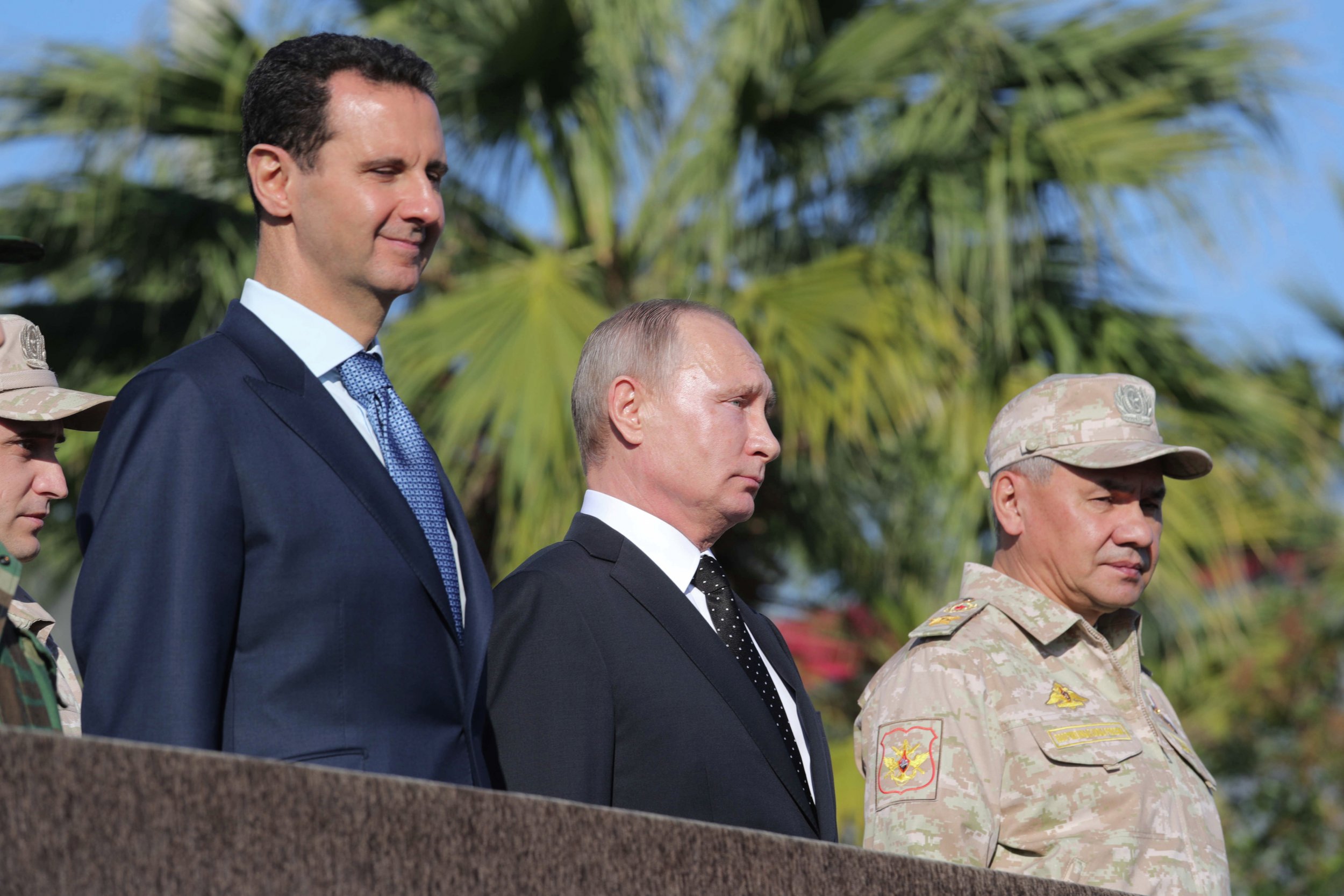
Vladimir Putin has a new year's message for Syrian President Bashar al-Assad: Russia will continue to back Syria.
In an end of year greeting issued by the Kremlin, Putin insisted that he would "continue to render every assistance to Syria in the protection of state sovereignty, unity and territorial integrity," Reuters reported.
Russia would back Syria "in the promotion of a political settlement process, as well as in efforts to restore the national economy," the president said.
Russia first became involved in the Syrian civil war in 2015. Putin asked his troops earlier this month to begin the process of extricating themselves from the conflict and return home.
"In two years, the Russian armed forces, together with the Syrian army, have defeated the most lethal group of international terrorists," Putin said at the time, according to a report from the Tass news agency translated by CNN.
"In this regard, I have decided that a significant part of the Russian military contingent in the Syrian Arab Republic is returning home to Russia," he said.
But Russia plans to maintain a presence in the Middle Eastern country, sustaining a permanent air force base, Hmeymim, in the north west of the country, and a naval headquarters at Tartous, along the coast to the south.
Russia's intervention in Syria was ostensibly aimed at furthering its foreign policy aim of attacking "terrorism." Russia has made much, for example, of its intent to crush the Islamic State militant group (ISIS), an enemy both of Assad and of western powers like Britain and the United States.
But many experts think another goal of Putin's was to shore up his ally Assad and prevent him losing power.
For example, a 2016 report from the Atlantic Council said that "Initial Russian Defense Ministry combat reports claimed that ISIS was the only target.
"Yet analysis of open source and social media intelligence (OSSMINT) quickly revealed that the ministry's claims were deceptive, and that the Russian strikes were not primarily targeting ISIS.
"Subsequent research also revealed evidence of the use of cluster munitions and bombs that destroyed civilian targets.
"In fact, the main beneficiary of the Russian air strikes was Syrian President Bashar al-Assad, whose forces were able to retake key areas in and around Latakia and Aleppo."
Meanwhile, Dmitri Trenin, director of Moscow's Carnegie Center, told Newsweek earlier this year that: "The goal of [Putin's] foreign policy is to restore Russia as a global major power. For him to be able to operate in the Middle East, in competition with the U.S., is a badge of [being] a major power.
"That is what Russia did in Syria."
Uncommon Knowledge
Newsweek is committed to challenging conventional wisdom and finding connections in the search for common ground.
Newsweek is committed to challenging conventional wisdom and finding connections in the search for common ground.
About the writer
Josh is a staff writer covering Europe, including politics, policy, immigration and more.
To read how Newsweek uses AI as a newsroom tool, Click here.








